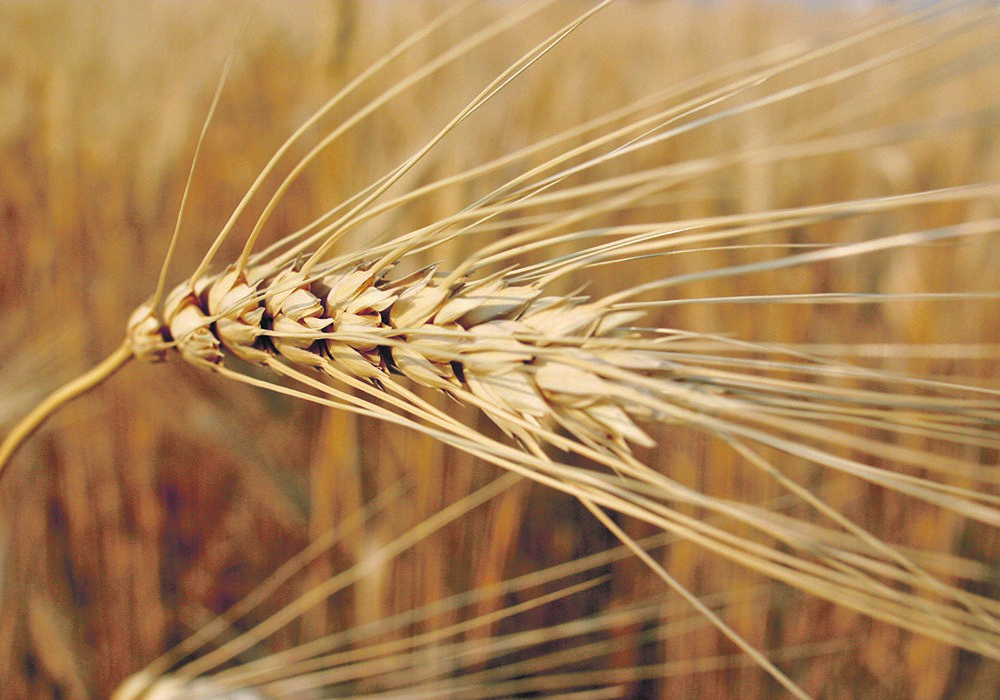It’s thought that Turkey is buying more durum because it is processing and reselling it to neighbouring countries affected by Syria’s civil war. | File photo
Shipments in the first seven months of the year have increased 400 percent from the same period of time last year
Pop quiz — who is Canada’s top durum customer in 2019-20?
Hint — it is not the usual suspects of Italy, Morocco or the United States.
Turkey has taken over top spot, importing a ridiculous amount of it this year.
Canada shipped 824,200 tonnes of bulk durum to Turkey through the first seven months of the current crop year, according to the Canadian Grain Commission.
That is a 400 percent increase over the same period a year ago.
Italy has been the second biggest buyer, importing 568,800 tonnes, followed by Morocco’s 430,000 tonnes.
So what’s up with Turkey?
Some clues are contained in the recent U.S. Department of Agriculture’s Grain: World Markets and Trade report.
It estimates Turkey’s overall wheat imports are expected to surge by 62 percent to 10.5 million tonnes in 2019-20.
That would make Turkey the world’s third largest wheat importer behind Egypt and Indonesia.
“In recent years, demand in Turkey has trended higher with the presence of a large number of Syrian refugees who are highly reliant on basic staples such as bread,” stated the USDA report.
It also noted that Turkey’s contracting gross domestic product and reduced purchasing power has increased the consumption of staples such as bread and pasta.
“Coupled with lower domestic production, that growth in demand created a surge in imports,” stated the report.
MarketsFarm analyst Bruce Burnett thinks a lot of the wheat and durum that Turkey is importing is being processed and re-exported to neighbouring countries affected by Syria’s lengthy civil war.
“Most of the milling infrastructure in (Syria) is likely decimated by the war,” he said.
At one time Syria used to export durum but now it has become reliant on food aid shipments of pasta and other products.
Turkey imports soft wheats from Russia and Ukraine because it is situated across the Black Sea from those countries where wheat is cheap and plentiful.
But it has to go further afield to secure supplies of durum and that is where Canada becomes a player.
Another possible reason for the uptick in business from Canada is that AGT Food and Ingredients has become a big player in the Canadian durum market and is processing the crop at its milling facilities in Turkey.
“That would be a factor in this but I don’t think it’s the sole reason why those exports are as high as they’ve moved up to,” said Burnett.
The USDA said it is typical for Turkey’s imports to mirror its exports in terms of total wheat-equivalent volume as the government allows wheat to be imported duty-free if it is to be processed and re-exported.
However, in 2019-20 imports are expected to far exceed exports due to active purchasing by Turkey’s grain board, which is known as TMO.
“TMO reduced its domestic procurement when market prices rose due to a smaller crop and the depreciation of the Turkish lira,” stated the USDA.
“To contain prices, TMO has imported several million tonnes of wheat duty-free.”
That will likely lead to elevated wheat stocks in the country.
Burnett said Turkey’s 2019-20 wheat imports have been exceptional, partly due to what is likely a poorer than officially reported harvest.
But he doesn’t expect purchases to completely revert back to former levels in 2020-21 due to the Syrian refugee factor and other issues in the region.
“You could see it come down 10 or 20 percent,” he said.
“I know a lot of other people are maybe thinking a larger drop-off.”
Source: Producer



